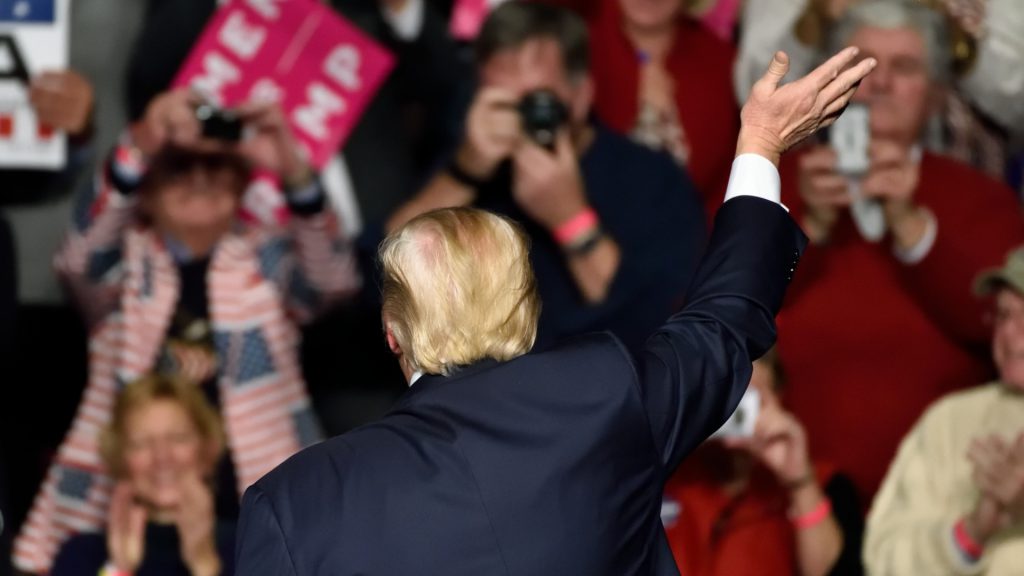
Published October 15, 2019
President Donald Trump’s betrayal of the Kurds stung deeply. “They trusted us and we broke that trust. It’s a stain on the American conscience.” These, according to The New York Times, are the searing words of an Army officer who has worked alongside the Kurds in northern Syria.
Kurdish forces played a central role in aiding the United States in fighting the Islamic State. But in a phone call a week ago Sunday, Trump gave the green light to Turkish President Recep Tayyip Erdoğan to invade northern Syria—and, in the process, to engage in what even one of Trump’s most loyal supporters, Senator Lindsey Graham, describes as the “ethnic cleansing” of the Kurds.
According to Jennifer Griffin and Melissa Leon of Fox News, Trump was supposed to tell Erdoğan to stay north of the border, but instead “went off script.” By Wednesday, the Turkish offensive began, with Erdoğan’s aim to push back the Syrian Kurds from the border region. The results have been swift and brutal: the displacement of more than 100,000 people, executions and war crimes, the escape of hundreds of Islamic State prisoners. (If Islamic State fighters escape, they’ll “be escaping to Europe,” Trump said last week—as if Europe’s problems don’t affect the United States.) For the Kurds, the consequences of America’s policy change will only get worse. “I don’t know how many people will die. A lot of people will die,” a senior military source told Fox News. Yesterday the Trump administration tried frantically to make Turkey stand down, but enormous damage has already been done.
For once, Republicans have forcefully spoken out against Mr. Trump. Graham said our Kurdish allies had been “shamelessly abandoned by the Trump administration.” Representative Liz Cheney of Wyoming, the third-ranking Republican in the House, said Trump’s decision is having “sickening and predictable” consequences. Representative Adam Kinzinger, an Air Force veteran, said on Face the Nation that “leaving an ally behind … is disheartening, depressing.” He added, “The Kurds found out on Twitter, for goodness’ sake. We have left them to the wolves. And the message this is sending to our allies around the world, I think, is really going to be bad.” Senator Mitt Romney, the Republican lawmaker who has been the most willing to speak the truth about Trump, declared on Twitter, “The President’s decision to abandon our Kurd allies in the face of an assault by Turkey is a betrayal.”
Indeed it is. But betrayal is hardly new to Trump, who routinely abandons people who trust in him or the nation he leads. By now, this behavior should come as a surprise to exactly no one.
Betrayal is a leitmotif for this president’s entire life. Think of how he cheated on his wives. Think of the infant child of a nephew who had crucial medical benefits withdrawn by Trump because of Trump’s retaliation against his nephew over an inheritance dispute. Think of those who enrolled at Trump University and were defrauded. Think about the contractors whom Trump has stiffed. Think of Jeff Sessions, the first prominent Republican to endorse Trump, whom Trump viciously turned against because Sessions had properly recused himself from overseeing the investigation into whether Russia had intervened in the 2016 election. Think about those who served in Trump’s administration—Rex Tillerson, John Bolton, Don McGahn, Reince Priebus, Gary Cohn, James Mattis, and many more—who were unceremoniously dumped and, in some cases, mocked on their way out the door.
Also think of how Trump has disparaged his own country while making excuses for strongmen. When MSNBC’s Joe Scarborough said Vladimir Putin “kills journalists, political opponents, and invades countries,” Trump replied that “at least he’s a leader.” Besides, Trump asserted, “I think our country does plenty of killing also.” And when asked whether Erdoğan was exploiting the coup attempt to purge his political enemies, Trump did not call for the Turkish leader to observe the rule of law, or Western standards of justice. “When the world sees how bad the United States is and we start talking about civil liberties, I don’t think we are a very good messenger,” he said.
As McKay Coppins put it in The Atlantic shortly after the president was sworn in, “Trump built his success on his willingness to toss aside mentors, friends, and family members during moments of frustration and chaos.” Serial betrayal is a central trait of Trump’s character, and his critics warned from the start against elevating such a person to the nation’s highest position of public trust. When the consequences are the serial humiliation of Cabinet secretaries and White House aides, they are easier for Trump’s political supporters to rationalize or overlook. But as the professor Robert King once declared, “Betrayal is a garment without seams.” The danger is far plainer when the victims of Trump’s betrayal are longtime American allies facing deadly force.
Individuals like Donald Trump, who chronically betray others, are incapable of authentic relationships or genuine human connections. They view other people solely in transactional terms. For malignant narcissists, they themselves are the alpha and the omega, the first and the last, the beginning and the end. Other human beings don’t have inherent dignity; their worth is determined solely in terms of what they can do for the person who is the betrayer. If the answer is nothing, then others are dismissed, discarded, and abandoned. There is no empathy, no sympathy, no guilt or shame.
The Kurds were a mere afterthought to Donald Trump. Turkey’s Erdoğan is the type of authoritarian leader who can easily manipulate the president. Erdoğan wanted something done, and Trump was willing to do it.
A year ago, President Trump was praising the Kurds as “great” allies, vowing to protect them. “They fought with us. They died with us,” Trump said. “We have not forgotten.” But just a few days ago, he dismissed the Kurds this way: “They didn’t help us in the Second World War. They didn’t help us with Normandy, as an example.”
President Trump doesn’t interpret his abandonment of America’s faithful and intrepid Kurdish ally as betrayal because he can’t even understand why betrayal is a vice. It’s like trying to explain color to a person born with no eyesight. He doesn’t appear to comprehend that a relationship without trust is not a true relationship; it’s merely an exchange of needs—and President Trump will betray anyone who no longer serves his needs.
“We should expect our current president to betray anyone or any principle or any norm or any ally whenever he has the impulse to do so,” a friend of mine who is a psychologist told me via email. (To make sense of the Trump years, an understanding of psychology is at least as helpful as an understanding of politics.) “This should scare us all, and there’s no evidence he is capable of deferring to someone else when his relationship indifference could (again) cost lives.”
My friend, who asked not to be named because she wanted to avoid being part of the political controversy, went on to say, “Expect betrayal, because [Trump] does not know what that even means.”
The betrayal won’t stop with the Kurds. Every individual, every institution, every government agency, and every American ally could meet a similar fate. Donald Trump’s loyalty runs exactly as deep to his fellow citizens, the rule of law, the Constitution, America’s best traditions, and traditional codes of honor and decency as it does to his previous wives, to his former aides, and to those he has done business with. “A stain on the American conscience” isn’t just a characterization of what Trump did to the Kurds in northern Syria. It may also prove to be a fitting epitaph for the Trump presidency as a whole.
Peter Wehner is a contributing writer at The Atlantic and a senior fellow at the Ethics and Public Policy Center. He writes widely on political, cultural, religious, and national-security issues, and he is the author of The Death of Politics: How to Heal Our Frayed Republic After Trump.





